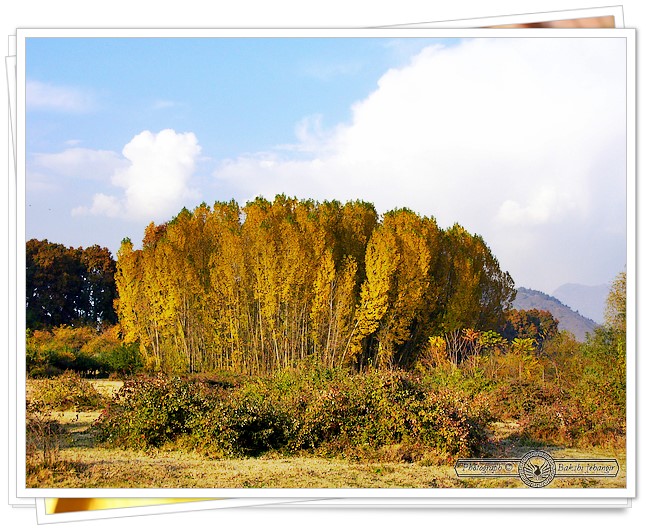In Ancient Rome the fifteenth of March was a momentous date as on that day in 44 BC Julius Caesar, having ignored a warning to ‘beware the Ides of March’, was assassinated by a group of conspirators. Interestingly the Romans did not number days from the first to the last day of a month but instead counted back from three fixed points of the month: the Nones (nine days before the Ides), the Ides (the middle of each month), and the Kalends (the first day of the following month, and the origin of the word calendar).
Happily, in Kashmir the fifteenth of March has a far pleasanter connotation as the day marks the advent of spring.

As per Kashmiri tradition a year is divided into six seasons of two months each starting from the fifteenth day of the modern calendar:
Sonth (Spring) / March 15 to May 14


Grishm (Summer)/ May 16 to July 14


Wahrat (Monsoon)/ July 15 to September 14


Harud (Autumn)/ September 15 to November 14


Wandh (Winter)/ November 15 to January 14


Shishur (Frost)/ January 15 to March 14


W. R. Lawrence in his encyclopaedic 1895 book ‘The Valley of Kashmir’ also informs us of the rural calendar which has twelve seasons.
According to Lawrence : ‘It is useful to remember these names, as the Kashmiris are somewhat hazy as to months, and months of agriculturists are usually one month in advance of the official months. It is said that the agriculturist calendar was introduced by Sultan Shamas Din, and the Kashmiri cultivators always talk of Vahek, Zeth, Shrawan, Bhodur, Ashud, Kartik, Mangor, and Tsitr, their equivalents for the Indian Bisakh, Jeth, Sawan, Bhadron, Asuj, Katik, Magar, and Chet.’
Indian / Kashmiri
Chaitra / Tsithur
Baisakh / Vahekh
Jeth / Zeth
Ashad / Har
Shravan / Shravun
Bhadon / Badrupeth
Aashwin / Ashid
Kartik / Kartikh
Margshirsh / Monjhor
Posh / Poh
Magh / Mag
Phalgun / Phagun
While autumn remains my favourite time of the year, spring always brings renewed hope for fresh beginnings.

nothing fails, or shall perish,
until we be born again,
until all that lay plundered
be restored with the tread
of the springtime we buried
~ Pablo Neruda
Or, the TL;DR version from Neruda himself:
You can cut all the flowers but you cannot keep Spring from coming

